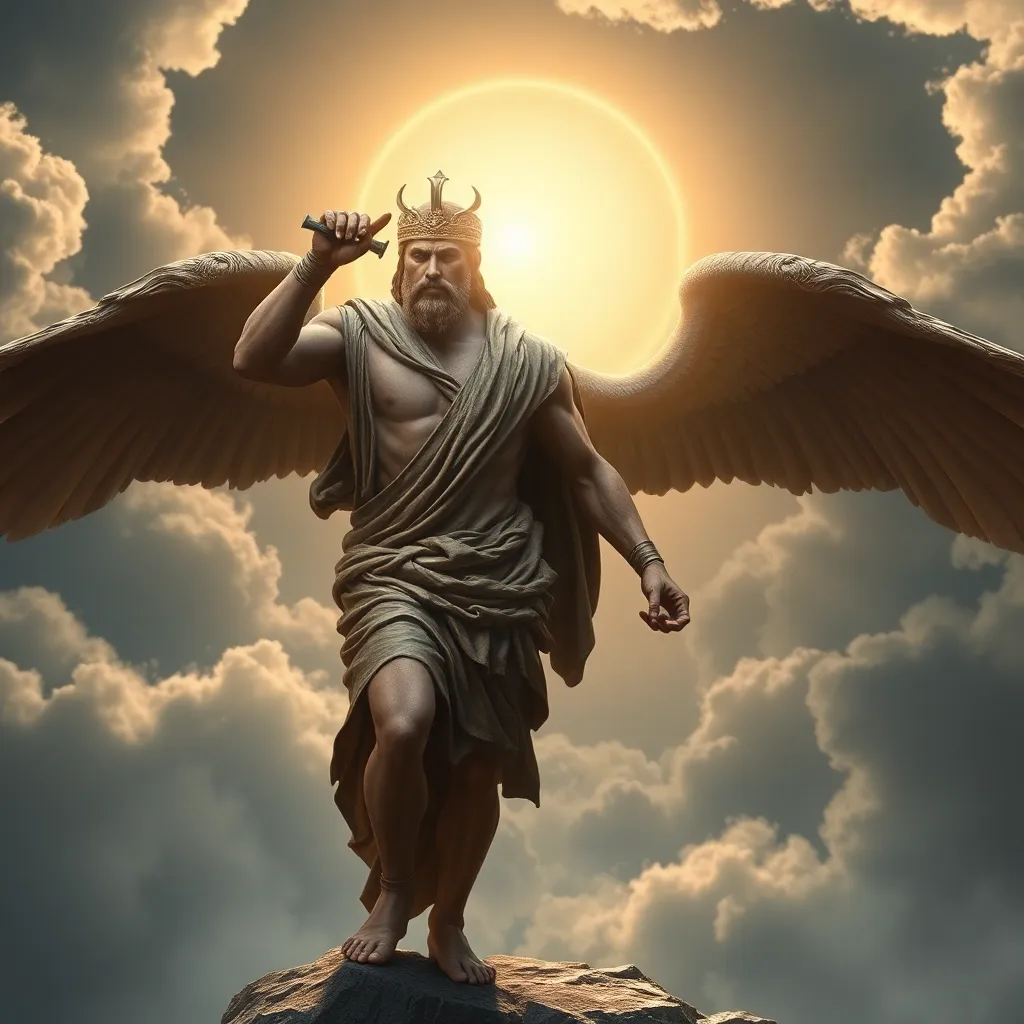Heracles and the Quest for Immortality: A Mythological Perspective
I. Introduction
Heracles, known for his extraordinary strength and heroic feats, stands as one of the most prominent figures in Greek mythology. His adventures have captivated audiences for centuries, representing the ideal of heroism and the struggle against insurmountable odds.
In ancient Greek culture, the concept of immortality held profound significance. It was not merely the absence of death but a state of existence that transcended the mortal realm, often associated with the gods. This article explores Heracles’ quest for immortality, delving into his life, trials, and the divine influences that shaped his destiny.
II. The Birth and Early Life of Heracles
Heracles was born from the union of Zeus, the king of the gods, and Alcmene, a mortal woman. This divine parentage set the stage for a life filled with extraordinary challenges and achievements.
However, his birth was marred by the jealousy of Hera, Zeus’ wife, who sought to thwart Heracles at every turn. Despite these challenges, early signs of his strength and heroism were evident:
- As an infant, Heracles famously strangled two serpents sent by Hera to kill him.
- He displayed immense physical prowess, even as a child, showcasing his potential as a hero.
III. The Twelve Labors of Heracles
Heracles is perhaps best known for the Twelve Labors, a series of tasks he undertook as a form of penance. These labors not only demonstrated his strength but also symbolized the heroic journey and the quest for redemption.
The Twelve Labors are:
- The Nemean Lion
- The Lernaean Hydra
- The Ceryneian Hind
- The Erymanthian Boar
- The Augean Stables
- The Stymphalian Birds
- The Cretan Bull
- The Mares of Diomedes
- The Girdle of Hippolyta
- The Cattle of Geryon
- The Apples of the Hesperides
- The Capture of Cerberus
Each labor carries its own symbolic meaning, often representing the struggle against chaos and the pursuit of order. The concept of redemption is woven throughout these challenges, as Heracles seeks to atone for his past mistakes and secure his legacy.
IV. The Search for Immortality
Heracles’ quest for immortality was driven by several motivations. After enduring a life filled with trials and tribulations, he longed for a state of existence that would elevate him beyond mortality.
Key encounters that influenced his quest include:
- His interactions with various gods and goddesses who offered wisdom and guidance.
- Prophecies that foretold his fate, often hinting at the possibility of ascension to godhood.
The role of fate in his journey cannot be understated; Heracles was often seen as a pawn in the hands of the gods, yet he exhibited agency and determination in pursuing his ultimate goal.
V. The Role of the Gods in Heracles’ Quest
The gods played a crucial role in shaping Heracles’ life and quest for immortality. Zeus, his father, provided support and guidance, while other deities influenced his path.
Key divine interactions include:
- Zeus’ assistance in overcoming obstacles during the Twelve Labors.
- Hera’s relentless antagonism, which created numerous challenges throughout Heracles’ life.
- Divine interventions that both aided and hindered his progress.
The complexities of divine influence highlight the intricate relationship between mortals and gods in Greek mythology, illustrating how both support and opposition contribute to a hero’s journey.
VI. The Transformation of Heracles: Death and Ascension
Heracles’ death came as a result of a tragic misunderstanding involving a poisoned garment, leading to his suffering. However, this demise was not the end but rather a transformation.
The significance of Heracles’ transformation into a god is profound:
- It symbolizes the culmination of his struggles and the fulfillment of his quest for immortality.
- Heracles ascended to Mount Olympus, where he was granted a place among the gods, representing the ultimate reward for his heroism.
In this way, Heracles stands as a powerful symbol of the human struggle for immortality, showcasing the idea that through perseverance and bravery, one may transcend mortal limitations.
VII. Cultural Interpretations of Heracles’ Immortality
Heracles’ legacy transcends ancient Greece, influencing various cultures and artistic expressions throughout history. Different interpretations of his character and deeds reveal the multifaceted nature of his myth.
Key cultural impacts include:
- Heracles as a symbol of strength and resilience in literature and storytelling.
- His portrayal in art, from classical sculptures to modern adaptations in film and literature.
- The recurring themes of heroism, sacrifice, and the quest for immortality that resonate across cultures.
These interpretations highlight Heracles’ enduring relevance, demonstrating how his story continues to inspire and provoke thought in contemporary society.
VIII. Conclusion
In summary, Heracles’ journey is a rich tapestry of mythological significance, embodying the complexities of heroism and the quest for immortality. His life, marked by trials and divine interventions, illustrates the enduring human desire to transcend mortality.
The quest for immortality, as exemplified by Heracles, reflects a universal theme in human experience—the struggle against limitations and the aspiration for greatness. Today, the legacy of Heracles continues to thrive in contemporary culture, reminding us of the timeless nature of myth and the hero’s journey.




